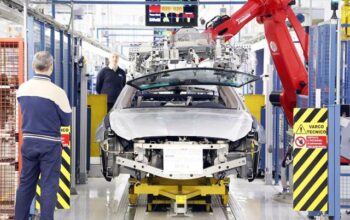Artificial Intelligence (AI) has rapidly become an integral part of our daily lives, reshaping the way we work, communicate, and live. In this digital age, AI technologies are transforming industries, automating tasks, and enhancing decision-making processes. This article delves into the profound impact of artificial intelligence on everyday life, exploring its applications, benefits, and challenges.
Introduction to Artificial Intelligence
Artificial Intelligence refers to the simulation of human intelligence in machines programmed to think and learn like humans. It encompasses a range of technologies, including machine learning, natural language processing, computer vision, and robotics. AI systems are designed to analyze vast datasets, identify patterns, and make predictions or decisions based on data, often with little to no human intervention.
Revolutionizing Healthcare
One of the most remarkable areas where AI is making a significant impact is healthcare. From early disease detection to personalized treatment plans, AI is transforming the healthcare landscape. AI-powered diagnostic tools can analyze medical images, such as X-rays and MRIs, with unparalleled accuracy. This not only speeds up the diagnostic process but also reduces the chances of human error.
Furthermore, AI-driven chatbots and virtual assistants are being used for patient engagement and monitoring. These virtual assistants can provide real-time health advice, medication reminders, and even emotional support, enhancing the overall patient experience.
Enhancing Education
Artificial Intelligence is revolutionizing education by providing personalized learning experiences. AI algorithms can assess students’ strengths and weaknesses and tailor educational content accordingly. This individualized approach ensures that each student can learn at their own pace, ultimately improving academic outcomes.
Additionally, AI-driven tools are simplifying administrative tasks for educators, allowing them to focus more on teaching. Automated grading systems, for example, can assess assignments and tests, saving educators valuable time.
Transforming Transportation
AI has also left a profound mark on the transportation industry. Self-driving cars, guided by AI algorithms and sensors, promise safer and more efficient roadways. These vehicles can communicate with each other and adapt to traffic conditions, reducing accidents caused by human error.
Moreover, ride-sharing platforms utilize AI to optimize routes and pricing, making transportation more convenient and affordable for users. AI is also being used in public transportation systems to predict maintenance needs and optimize schedules, improving the overall commuting experience.

Shaping Customer Service
Customer service has seen a significant transformation thanks to AI-powered chatbots and virtual assistants. Companies can now provide 24/7 support to their customers, addressing inquiries and resolving issues in real-time. These AI-driven systems are not only efficient but also cost-effective for businesses.
Furthermore, AI algorithms analyze customer data to provide personalized recommendations and marketing strategies. This enhances customer satisfaction and helps companies tailor their products and services to individual preferences.
The Ethical Considerations
While the impact of AI on everyday life is undeniably positive, it also raises ethical concerns. Issues related to privacy, bias in AI algorithms, and the potential loss of jobs due to automation must be addressed. It’s crucial to strike a balance between reaping the benefits of AI and ensuring its responsible and ethical use.
Conclusion
In conclusion, artificial intelligence has woven itself into the fabric of our daily lives, offering immense benefits across various sectors. From healthcare to education, transportation, and customer service, AI is enhancing efficiency, improving outcomes, and simplifying tasks. However, as we embrace the power of AI, it is essential to remain vigilant about ethical considerations and continuously strive for responsible and equitable AI deployment.
The impact of artificial intelligence on everyday life is undeniable, and it will only continue to grow as technology advances. Embracing AI’s potential while addressing its ethical challenges will ensure a future where AI truly enriches our lives. Are you looking for a piece of great information about technology? Then visit Balisa Faris to learn more.





